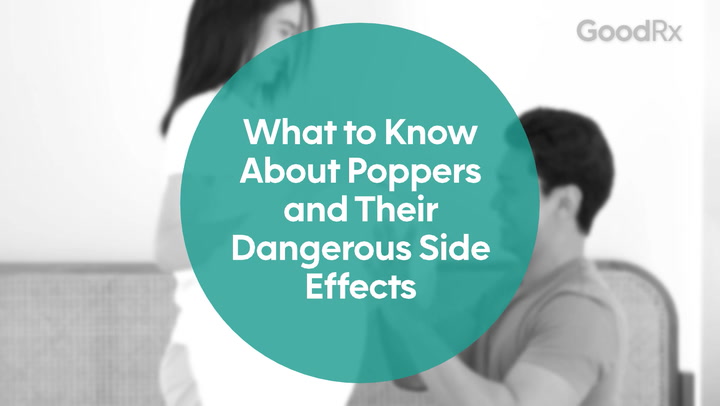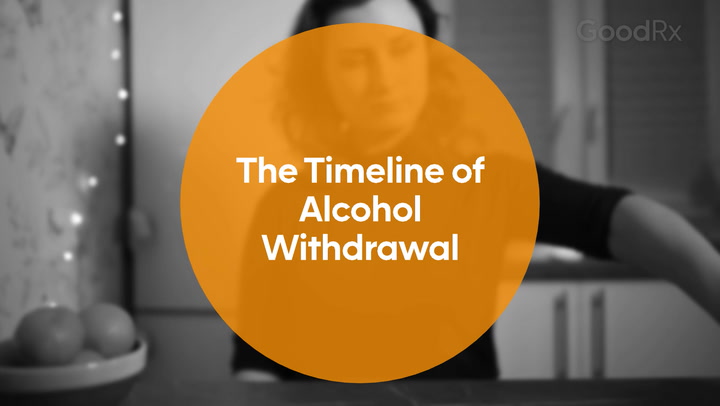
Does Weed Make You Lazy? Exploring the Stoner Stereotype
Key Takeaways:
Regular cannabis users are often portrayed with a negative, “lazy stoner” stereotype.
Previous research suggests there may be some truth to this, especially in young people, but more recent studies don’t support it.
The potential for negative long-term side effects from cannabis use appears to be greater for young people.
Table of contents
Movies, TV shows, and even the news media commonly portray cannabis users as “lazy stoners.” This depiction may be changing a bit, since cannabis use is now legal in many areas. But the stereotype persists. So, is there any truth to it?
Researchers have been studying this question for decades. But the data so far hasn’t been consistent. Now, though, there’s more research available on this issue than ever before. And, with increasing legalization, use, and funding for research, we can expect to learn even more in years to come.
How does cannabis work?
Cannabis works in the brain by tapping into the body’s natural endocannabinoid system (ECS). The endocannabinoid system is a messaging system in the brain and body. There are ECS receptors throughout the brain and the body. When someone uses cannabis, the main ingredients — cannabidiol (CBD) and tetrahydrocannabinol (THC) –- attach to these receptors. This is what causes the short-term effects on mood, memory, and how you feel physically.
Search and compare options
THC is the active ingredient responsible for the “high” (the mind-altering effects of cannabis). It influences your:
Thinking, concentration, learning, and memory
Planning and sense of time
Sense of pain
Bodily movements and coordination
Emotions, pleasure, and senses
THC also activates the reward system of the brain. This is important to the conversation about laziness or lack of motivation.
CBD, on the other hand, doesn’t have the same effects as THC on the brain. But it does have many reported health benefits, including helping with anxiety, sleep, and pain.
How cannabis makes you feel usually depends on the ratio of THC and CBD in the cannabis product you’re using.
Defining regular, heavy, and chronic cannabis use
There’s some variation in how regular, heavy, and chronic cannabis use are defined across research. Here are some typical definitions:
Regular use: being high 3 or more times a week
Heavy use: being high daily or several times a day
Chronic use: long-term heavy use over months and years
Read more like this
Explore these related articles, suggested for readers like you.
Can regular cannabis use change your behavior?
In the short-term, cannabis use can cause problems with memory, thinking clearly, concentration, and coordination. It can also cause feelings of panic, paranoia, and sadness — and even psychosis.
There’s evidence that long-term cannabis use (over months and years) can negatively affect your ability to think, learn, and save memories. This is especially true when cannabis use starts during adolescence. Small studies have shown that frequent cannabis users have impulse control problems and difficulty interpreting others’ expressions.
All of these things can impact your behavior and how you interact with the world around you.
Is there a connection between cannabis use and laziness?
The common stereotype is that a person who smokes cannabis is unmotivated, tired, and lazy. The term “cannabis amotivational syndrome” came about in the 1960s to describe this. Experts believed that regular, long-term cannabis use caused apathy, learning problems, and a lack of motivation.
There’s some evidence to support this idea. But there’s also data to suggest otherwise.
To understand this, researchers study the relationships between cannabis use and apathy and anhedonia:
Apathy is a loss of, or a drop in, motivation.
Anhedonia is a loss of interest in previously enjoyable activities.
Both apathy and anhedonia are related to how the brain processes rewards. And, as mentioned above, THC affects the reward system in the brain.
What the studies say
Past studies (from 2016) suggested that regular cannabis use is associated with anhedonia in adolescents and apathy in young adults. Experts believed heavy cannabis use could lead to lack of motivation in daily or required tasks. The reason given for this was that cannabis use becomes the primary motivator.
That said, recent research didn’t find these links in teens or adults when compared with controls (people who don’t use cannabis).
Another recent study agreed. It looked at 260 regular cannabis users (using it 3 or more times per week). The participants reported feeling more impulsive while high. But their overall motivation or willpower wasn’t affected by regular use or regular heavy use of cannabis.
It’s increasingly clear among experts that the relationship between cannabis use and motivation and behavior is complex.
Not only that, but the studies are difficult to interpret. For example, observational studies can’t control for variables — other factors that may also influence behavior but aren’t related to cannabis use. And many studies rely on people self-reporting their cannabis use.
In other words, there’s a lot of room for error and bias. Without better evidence, it’s very hard to prove that cannabis use causes laziness or a lack of motivation.
Does cannabis use impact work and school performance?
There are few studies on workplace performance and cannabis use. But many studies suggest that the frequency of cannabis use is linked with worse high school and college grades and completion rates. This is probably not surprising, since cannabis is known to impair the following:
Attention
Coordination
Cognitive functioning
Memory
Learning ability
Cannabis with high THC content is the most potent. (That’s anything with a THC concentration higher than 20%.) These products can impair your memory and motivation while you’re high. But issues with learning may last even after the high ends. Without the ability to concentrate and focus, performing well in a work or school setting becomes a real challenge.
Does regular cannabis use cause mental health changes?
There are links between regular cannabis use and several mental health conditions. But it’s not easy to determine cause and effect. That means it’s not clear if cannabis use causes mental health problems — or if people with undiagnosed and untreated mental health problems turn to cannabis for relief from their symptoms.
Previously, experts thought that chronic cannabis use was linked to an increased risk of psychosis. But recent research findings don’t support this. Similarly, there may be a link between cannabis use and depression. But this could be explained by people with depression being more likely to use cannabis.
That said, cannabis use disorder and dependence are more likely in people with mood disorders, including major depressive disorder. So, the relationship between cannabis use and mental health changes is not clear-cut.
Unique risks for younger users
It’s worth noting that the negative effects of cannabis use seem to be more concerning for younger people. For example, regular cannabis use in teens is linked to:
Altered brain networking
Problems with cognition (thinking)
Addiction later in life
What are the benefits of cannabis?
As noted, cannabis use has plenty of consequences and potential negative effects. But there are short-term benefits of cannabis use. People use cannabis to experience:
Feeling calm and relaxed
Sensing things around you in a different way
A sense that time is speeding up or slowing down
Stress relief
Some people also seek out cannabis for its medical benefits. Experts are either studying or recommending the use of cannabis or cannabinoids to treat health concerns like:
Multiple sclerosis (MS)
In many cases, the long-term benefits of using cannabis for medical uses require further research.
What are the side effects of cannabis?
Cannabis can trigger unwanted side effects in addition to the desired ones. Some of the most common undesirable, short-term effects of THC include:
Feeling anxious
Fast heart rate
Dizziness
Paranoia, distrust, and delusional thinking
Hallucinations, where you see, hear, smell, taste, or feel things that aren’t really there
The risk of these side effects increases as the THC dosage goes up. Regular use of high-THC cannabis products can also lead to longer-lasting issues. These include:
Cannabis hyperemesis syndrome (increased vomiting and stomach pain)
An increased risk of cardiovascular disease
Dependence (needing to keep using cannabis)
Researchers continue to look into the long-term effects on the brain from regular cannabis use.
It’s important to note that THC content has increased over the last several decades in many countries, including the U.S. And higher content is linked with greater harm.
The bottom line
Cannabis has a reputation for causing laziness and lack of motivation. Some research supports that — but not all of it. What’s clear is that the developing brains of teens and young people seem to be most open to the harmful, long-term effects of cannabis. Time (and research) will tell us more about these long-term effects.
Why trust our experts?



If you or someone you know struggles with substance use or mental health, help is available. Call SAMHSA’s National Helpline at 1-800-662-HELP (4357) to learn about resources in your area. For immediate assistance, call the National Suicide Prevention Lifeline at 988, or text “HOME” to 741-741 to reach the Crisis Text Line.
References
Arria, A. M., et al. (2015). The academic consequences of marijuana use during college. Psychology of Addictive Behaviors.
Campbell, D. (2024). U of T study challenges stereotypes about lazy, unmotivated cannabis users. University of Toronto.
Chester, L. A., et al. (2023). Influence of cannabis use on incidence of psychosis in people at clinical high risk. Psychiatry and Clinical Neurosciences.
Crean, R. D., et al. (2011). An evidence based review of acute and long-term effects of cannabis use on executive cognitive functions. Journal of Addiction Medicine.
Feingold, D., et al. (2021). Cannabis and depression. Advances in Experimental Medicine and Biology.
Government of Canada. (2018). Is cannabis safe to use? Facts for youth aged 13–17 years.
Hazle, M. C., et al. (2022). Workplace cannabis policies: A moving target. Cannabis and Cannabinoid Research.
Langlois, C., et al. (2021). Down and high: Reflections regarding depression and cannabis. Frontiers in Psychiatry.
Lawn, W., et al. (2016). Acute and chronic effects of cannabinoids on effort-related decision-making and reward learning: An evaluation of the cannabis ‘amotivational’ hypotheses. Psychopharmacology.
Meier, M. H., et al. (2012). Persistent cannabis users show neuropsychological decline from childhood to midlife. Proceedings of the National Academy of Sciences of the United States of America.
Meier, M. H., et al. (2022). Long-term cannabis use and cognitive reserves and hippocampal volume in midlife. American Journal of Psychiatry.
Moreno, M., et al. (2012). Impulsivity differences in recreational cannabis users and binge drinkers in a university population. Drug and Alcohol Dependence.
Mortensen, T. M., et al. (2019). The marijuana user in US news media: An examination of visual stereotypes of race, culture, criminality and normification. Visual Communication.
National Academies of Sciences, Engineering, and Medicine, et al. (2017). Mental health. The Health Effects of Cannabis and Cannabinoids: The Current State of Evidence and Recommendations for Research.
National Academies of Sciences, Engineering, and Medicine, et al. (2017). The health effects of cannabis and cannabinoids: The current state of evidence and recommendations for research. National Academies Press.
National Center for Complementary and Integrative Health. (2019). Cannabis (marijuana) and cannabinoids: What you need to know.
Platt, B., et al. (2010). Processing dynamic facial affect in frequent cannabis-users: Evidence of deficits in the speed of identifying emotional expressions. Drug and Alcohol Dependence.
Purcell, J. M., et al. (2022). The cannabidiol and marijuana research expansion act: Promotion of scientific knowledge to prevent a national health crisis. Lancet Regional Health – Americas.
Schmidt, K., et al. (2020). A systematic review: Adolescent cannabis use and suicide. Addictive Disorders & Their Treatment.
Skumlien, M., et al. (2022). Anhedonia, apathy, pleasure, and effort-based decision-making in adult and adolescent cannabis users and controls. International Journal of Neuropsychopharmacology.
Soleimani, N., et al. (2023). Altered brain structural and functional connectivity in cannabis users. Scientific Reports.
University of Bath. (2020). Cannabis strength soars over past half century. ScienceDaily.
Volkow, N. D., et al. (2016). Don’t worry, be happy: Endocannabinoids and cannabis at the intersection of stress and reward. Review in Advance.
Volkow, N. D., et al. (2016). Effects of cannabis use on human behavior, including cognition, motivation, and psychosis: A review. JAMA Psychiatry.





























